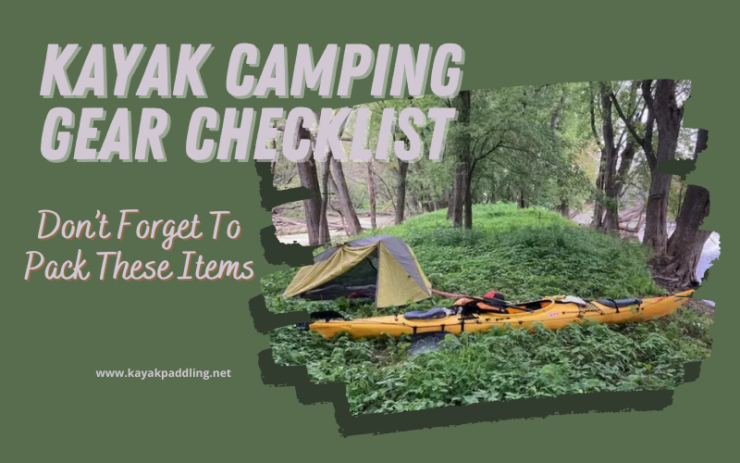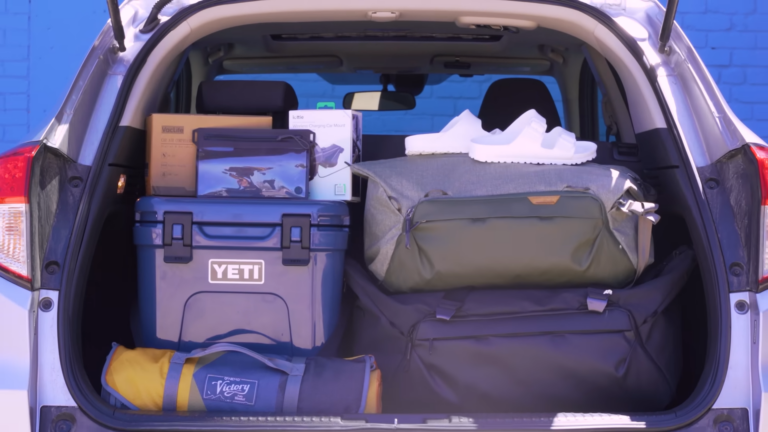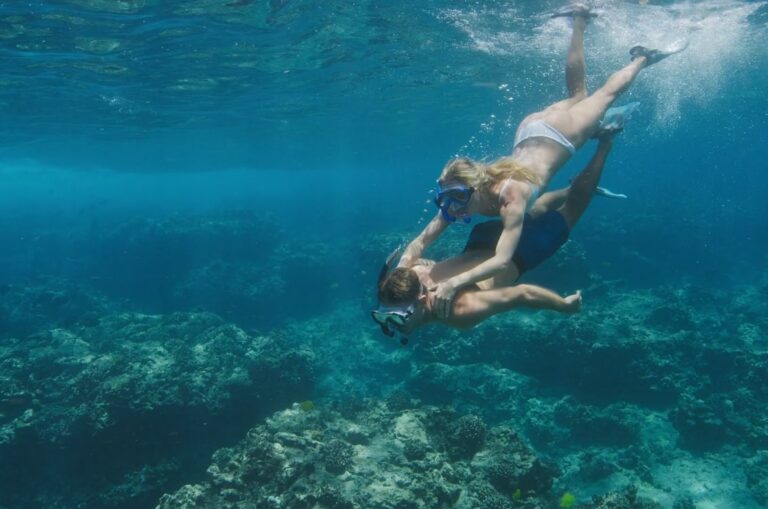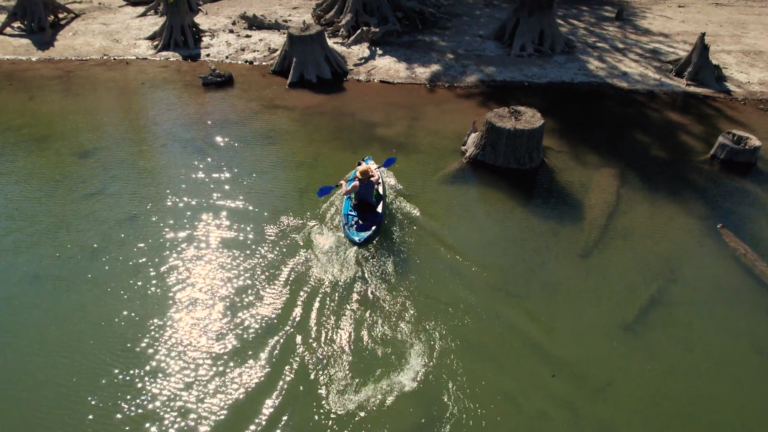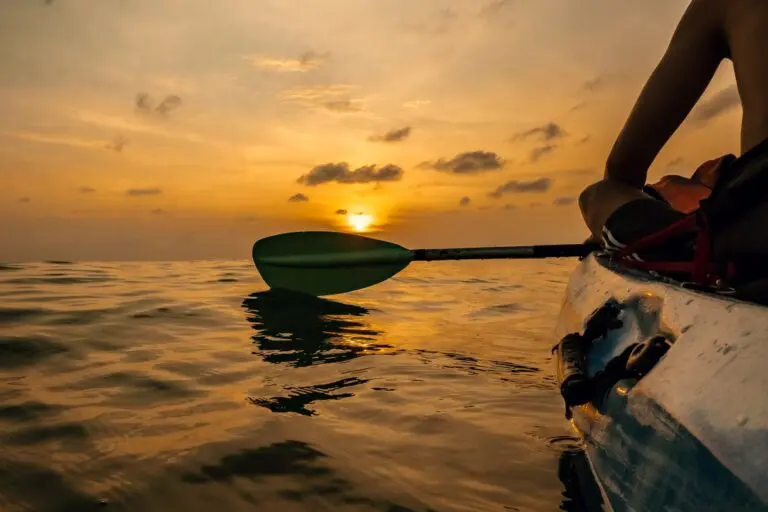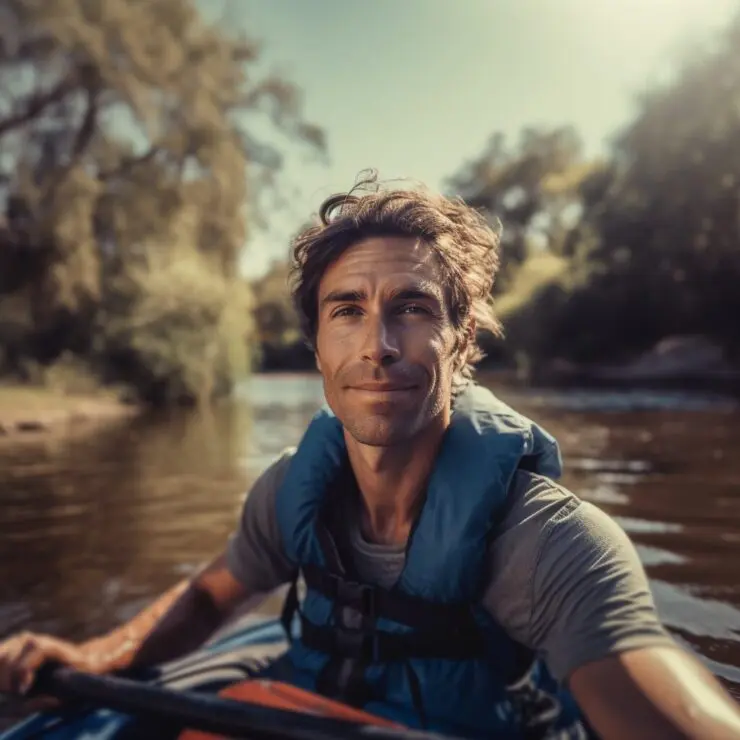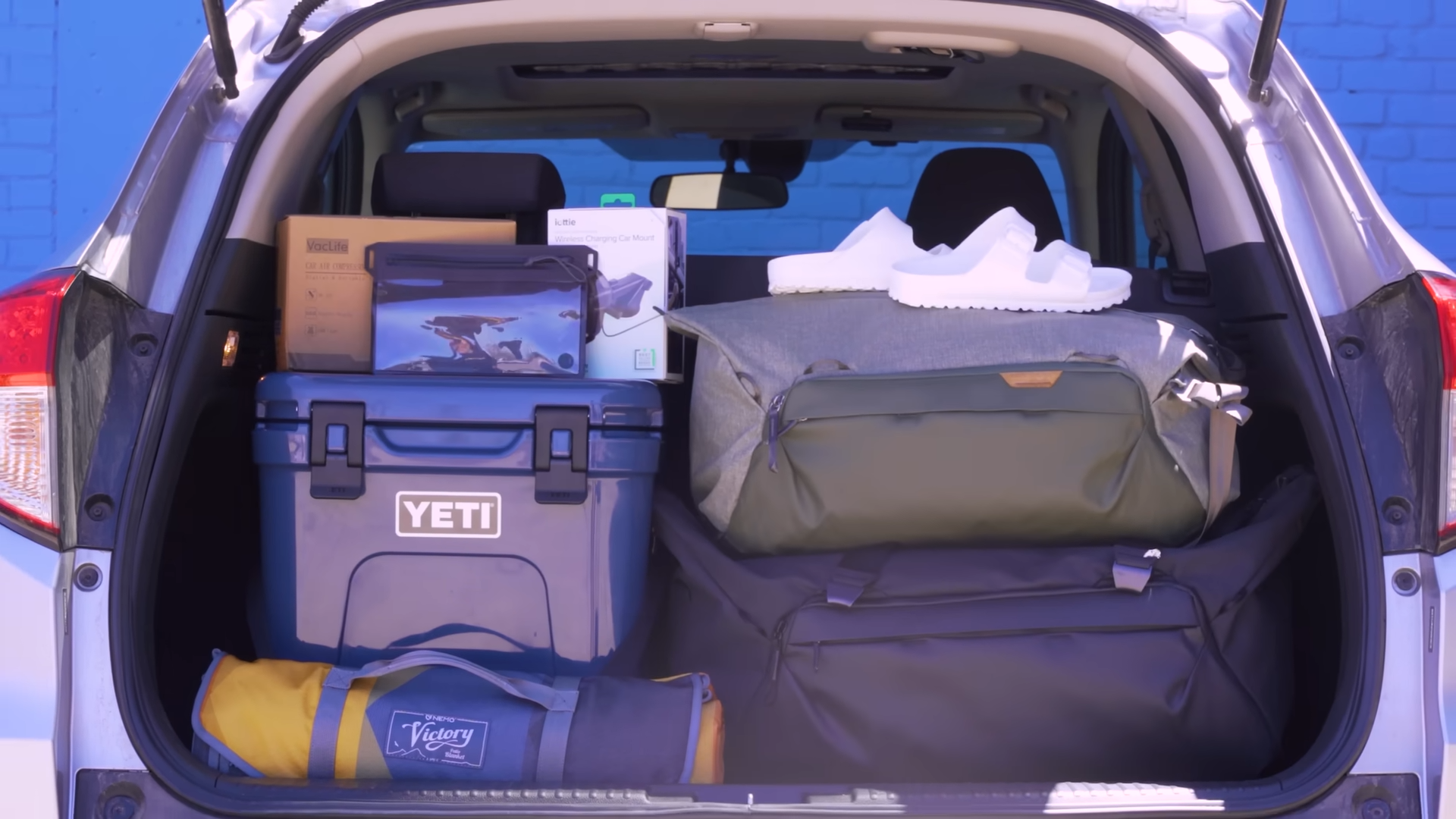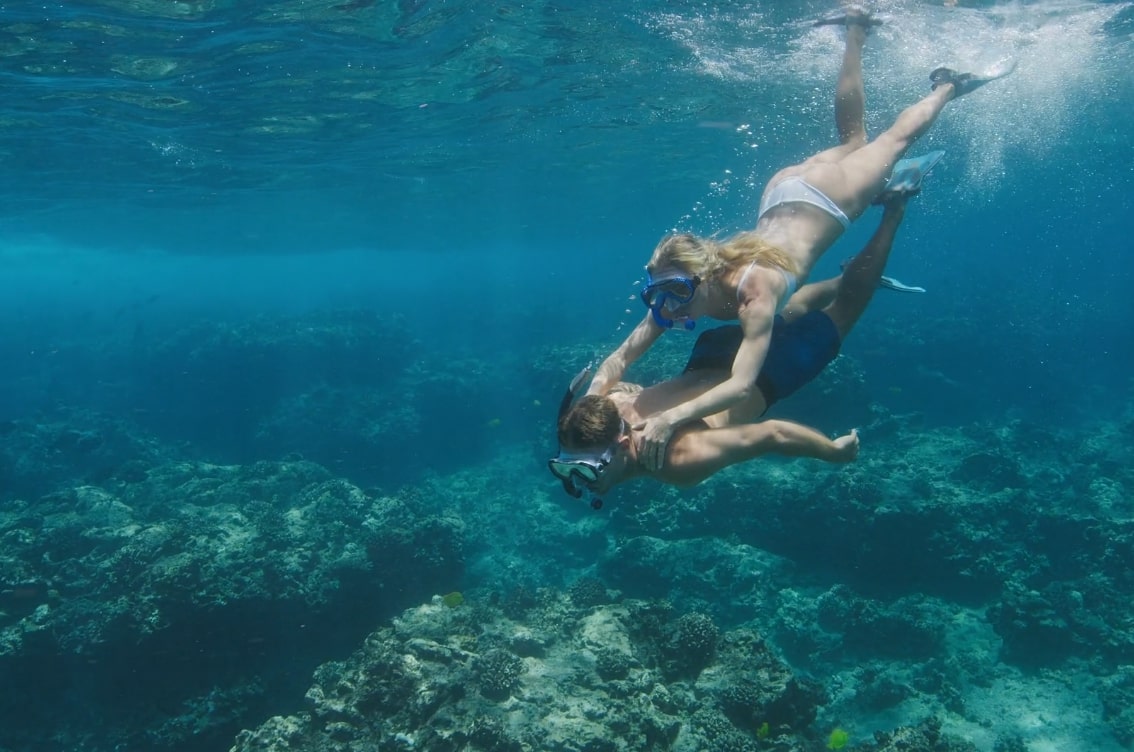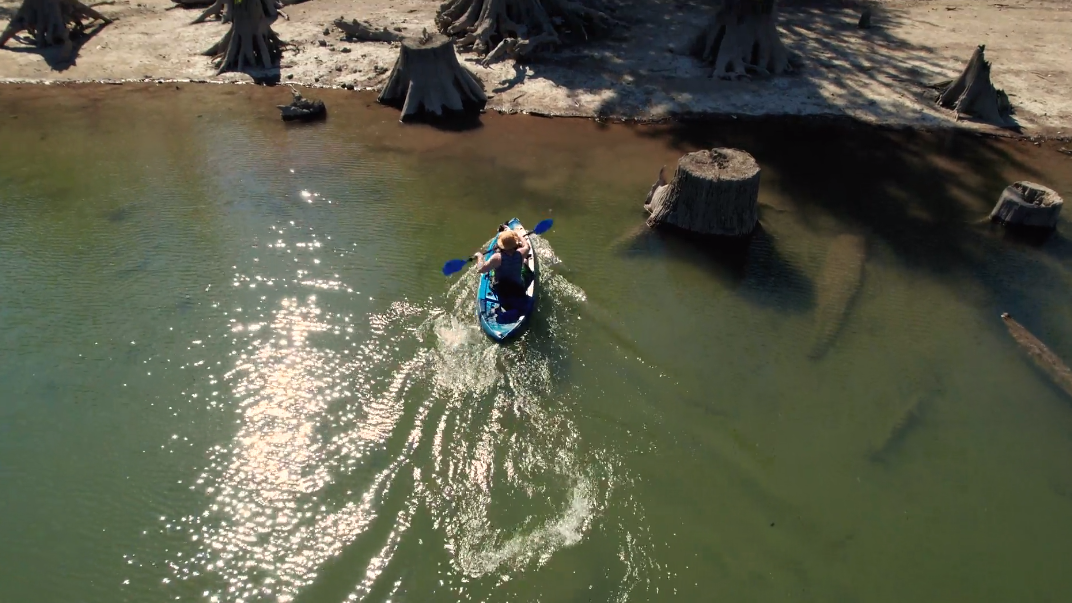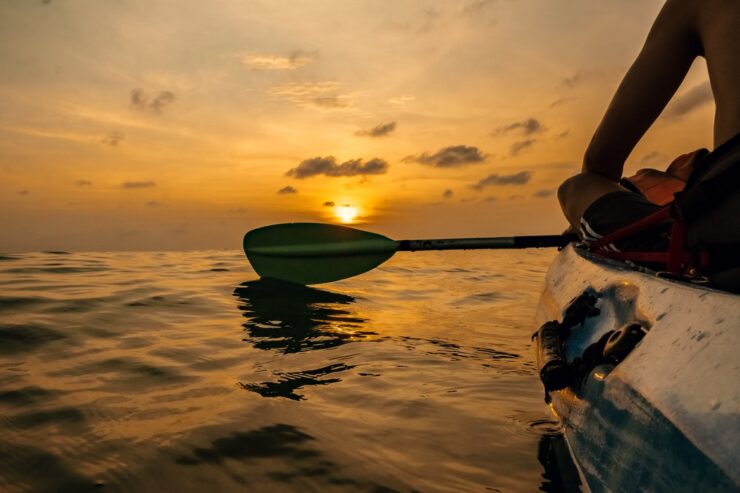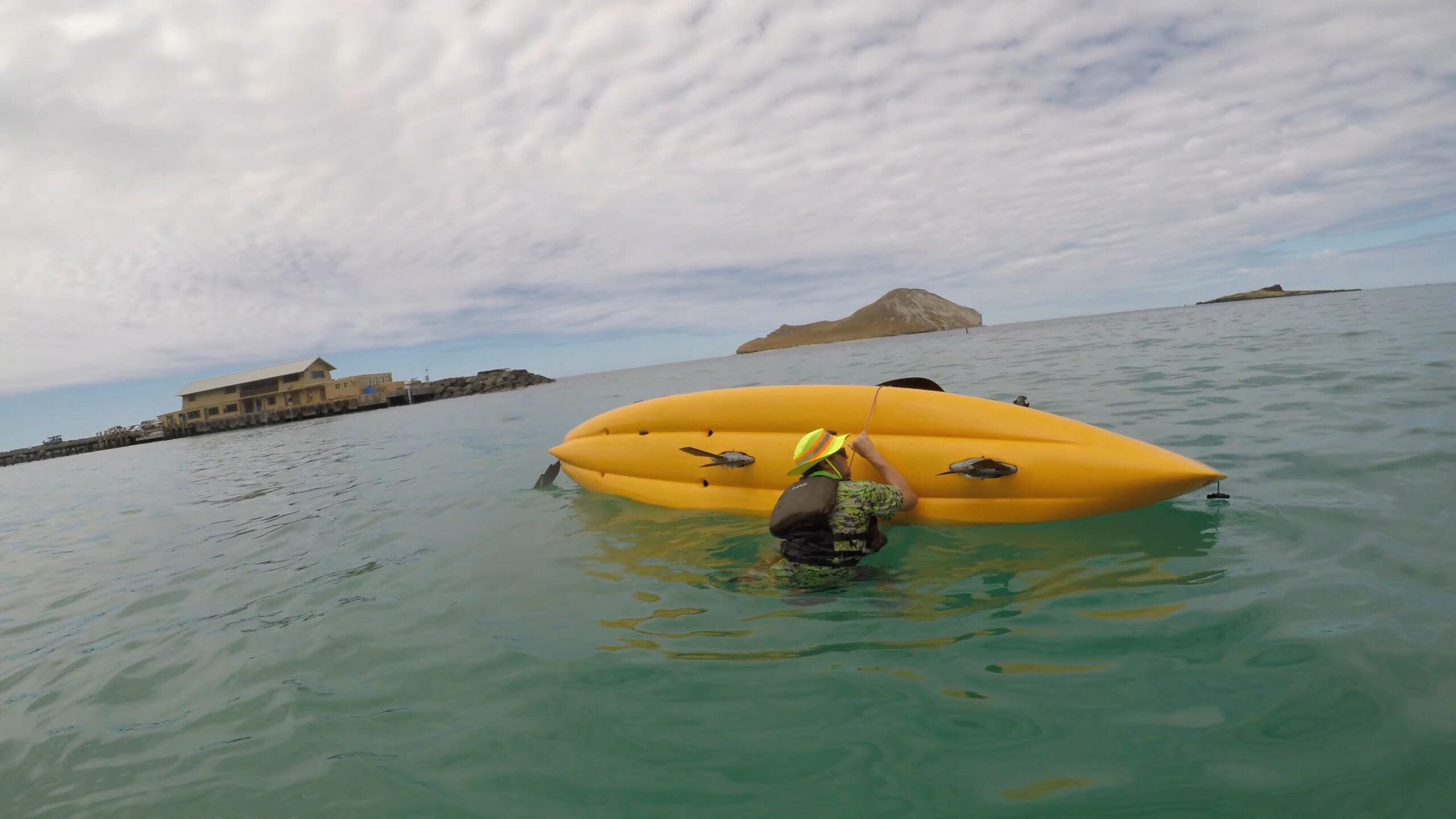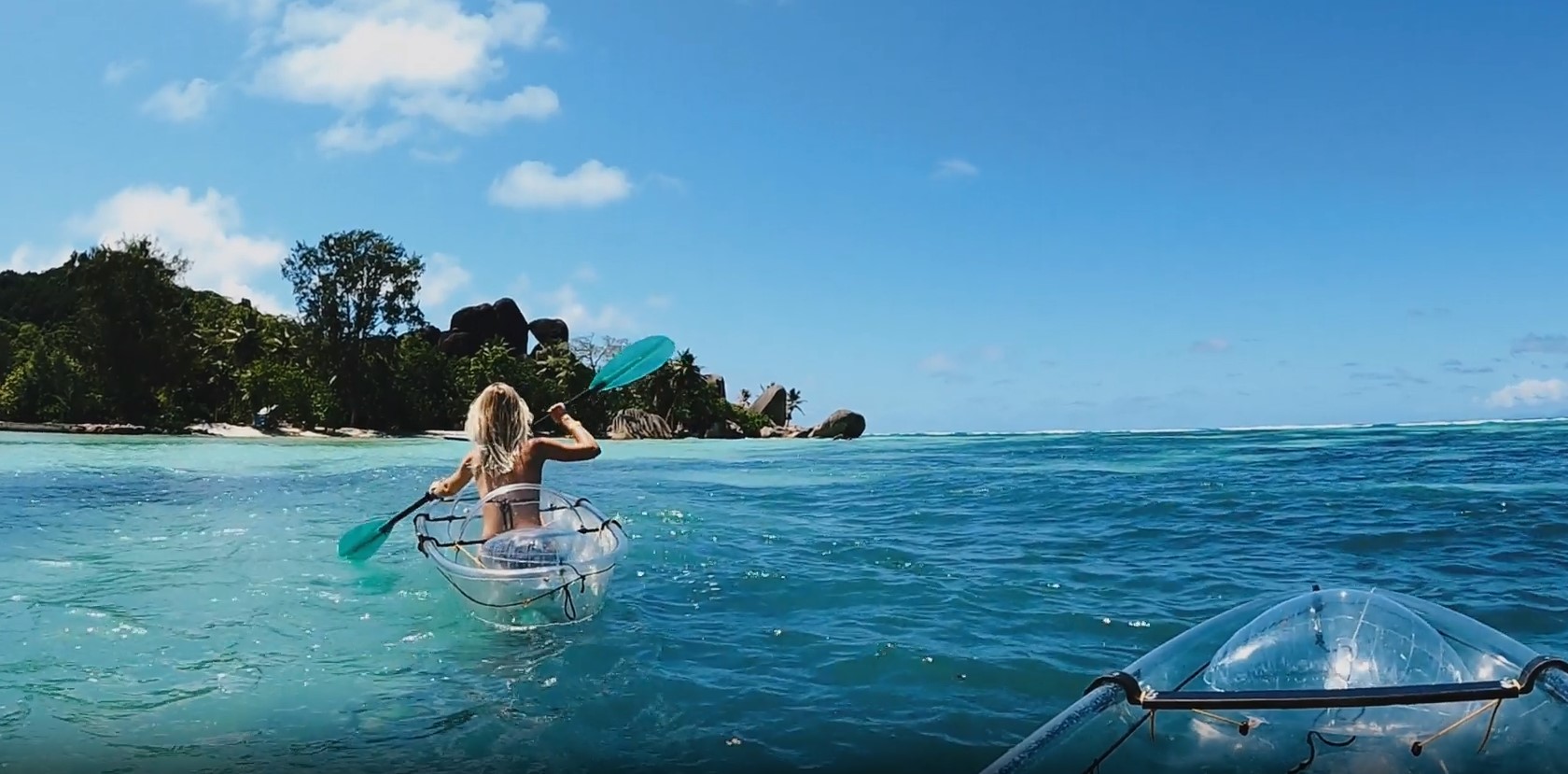This post focuses on what you need to pack for your next kayak camping or canoe camping adventure.
Your exact list will vary depending on the duration of your trip, the number of people in your party, and the season you’ll be traveling.
In all scenarios though you’ll need to pack light and pack efficiently. The items you’ll find on this list will help you to do that.
Let’s get to it!
Table of Contents
ToggleOur Gear Checklist For Kayak Camping Trips
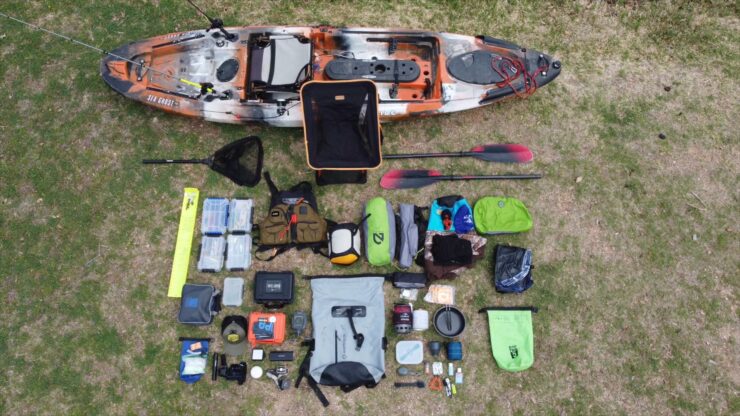
You won’t need all the camping equipment on this list but it’s a good starting point for planning your own kayaking packing list.
- Kayak Paddle – You won’t get far without a kayak paddle! We talk about our favorite kayak paddles here. It’s also a good idea to pack a backup paddle and tether your paddle to your kayak.
- A Good Kayak Seat – This can make the difference between a fun kayak camping trip and a miserable one. Check our tips on kayak seats if you need advice.
- Personal Floatation Device – Safety first. Check out our guide to choose the best PFD for you.
- Whistle
- Tethers – Make sure you tie down anything on the outside of the boat so you don’t lose anything.
- Water Filter – If you can safely filter water from a fresh source it saves you carrying it.
- First Aid Kit – Make sure you always pack one, they are essential in case of emergencies.
- GPS Tracker – Something like the Garmin Inreach which is a GPS tracker and satellite communicator could save your life in an emergency.
- A Compass – If you prefer to do things old-school you’ll need a compass and…
- A Printed Map – Don’t get lost. Make sure you know where you are at all times.
- Sleeping Bag – Depending on the weather you might need it to stay warm and for comfort.
- Sleeping Pad – Extra bulk and weight but some people can’t sleep without it.
- A Pillow – Again some people need a pillow to be able to sleep comfortably.
- A Tent – Unless you plan on car camping you’ll need a tent or…
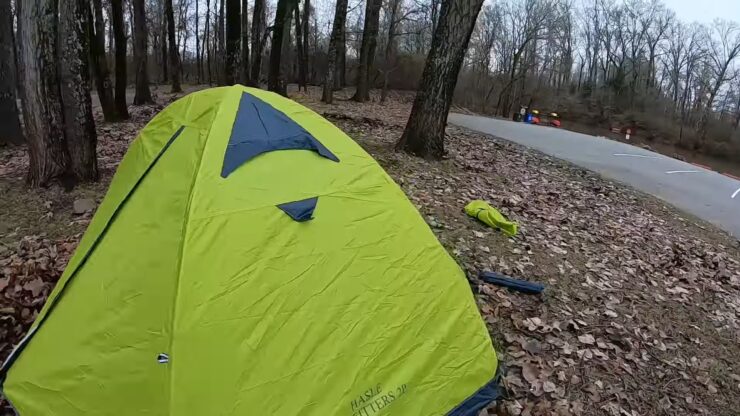
- A Hammock & Suspension Straps – Many kayak camping fans prefer to pack a hammock, they are smaller and lighter than tents. The hammocks from WiseOwlOutfitters are a great durable, lightweight, and affordable option!
- Clothing – What you’ll need to take will depend greatly on the season. Synthetic fabrics like polyester are lightweight and quick drying.
- A Camping Chair – Worth the extra weight so you can relax after your paddle.
- Sunscreen – Getting burned is too dangerous and not worth the risk. A solid sunblock weighs less than sun cream.
- Toilet Paper💩💩💩 – Does a kayaker sh*t in the woods? Yep, you bet he does.
- Toiletries – You’ll want to pack your toothbrush, toothpaste, wipes, and other things to keep you feeling fresh.
- Bug Repellant
- Water Shoes
- A Waterproof Case Or Bag For Your Phone – Although many cell phones are now water-resistant they won’t like it if you drop them in the river.
- Solar Phone Charger – Depending on how long you are going away for you might need to charge your cell phone.
- A Flashlight Or Headlamp – It’s crucial to be able to see at night when you are camping. You could be delayed and forced to make your camp in the dark.
- A Multitool – Something like a leatherman might come in handy.
- A Folding Saw – Handy to cut up driftwood to build a campfire.
- A Travel Towel – A small microfibre towel will come in handy they dry quickly and don’t take up a lot of space.
- Packing Cubes Or Stuff Sacks – These won’t save you weight but you’ll be able to compress your clothes into a small size so you can pack more efficiently. Check this demo of how much compression you can achieve with packing cubes over on TravelingLight.com
- Dry Bags -Pop your compressed cubes or stuff sacks inside a dry bag so your clothes don’t get wet! A clear dry sack will be helpful so you can see what’s inside.
- Tarp – You can use a tarp as a rain screen or a groundsheet.
- Camp Stove – No camping trip is complete without a cookout.
- Camp Kettle – Hot water is going to be useful to make coffee in the…
- Coffee Maker – Nothing helps revive you after a night sleeping rough than a good cup of joe.
- Folding Barbecue – If you are camping over a fire a folding barbecue provides a lightweight cooking grill.
- Food – A kayak camp will turn pretty miserable fast without some tasty meals to keep your belly from rumbling. Meat, potatoes, veg, and tin foil, and you’ll be able to make really tasty hobo packs on the campfire.
- Dishes & Utensils – We’re camping but we’re not animals.
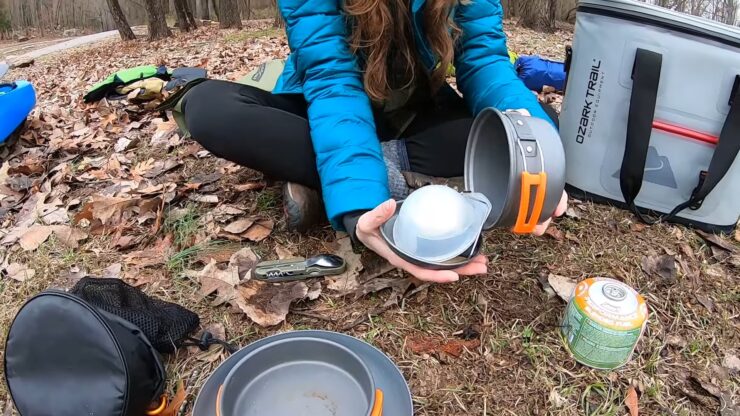
- Firelighters
- A Kayak Cooler – Somewhere to keep your food and drinks cool.
- Water Bottle – Staying hydrated is vital when you are in the sun and paddling hard.
- Kayak Fishing Equipment – If you’re going to be doing some yak angling you’ll need your rod, reel, and tackle.
- GoPro Or Other Video Equipment – If you like to document your kayaking camping adventure you’ll need the right video gear. With a drone and a kayak GoPro mount you’ll come home with some spectacular footage.
- Camera – You might be happy with your phone snaps or you might want something that takes more pro-quality photos.
- A Kayak Repair Kit – You might want to pack sealant and other repair tools in case you need to repair a hole in the kayak. A long firestarter lighter makes a great emergency plastic welding tool.
- Two-way Radios – Great to enable communication between members of your party but there is no point unless you also bring…
- A Kayaking Buddy – Kayaking is always safer and more fun if you go with a friend.
- A Trash Bag – Leave no trace, don’t dump any trash.
This video from Michael has lots of great tips about what to take for a kayak camping trip:
And also Dome Life has great tips about how to go kayak camping:
5 Essential Kayak Camping Tips
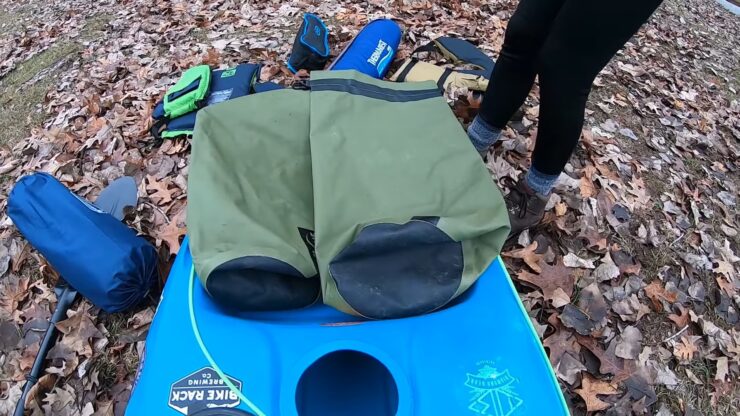
Kayak camping is very similar to backpacking, weight isn’t quite as crucial since you don’t carry the gear on your back but still need to be careful not to pack too much.
Here are our tips for an enjoyable kayak camping trip.
1. Balance Your Weight – When loading your kayak pack the heaviest items closer to the center of the kayak and away from the bow and stern.
2. Tether – Any items on your deck should be tethered so gear doesn’t go overboard.
3. Dry Bags Are Essential – While a good dry bag costs a little more it’s worth it to make sure your belongings don’t get soaked or even ruined.
4. Take Real Food With You – A kayak camp should be about having fun and enjoying the experience. Don’t ruin it by packing freeze-dried foods.
5. Take It Easy At First – You may need some time to get used to being on the water with a heavily loaded kayak. Go slow until you get used to the handling.
Final Thoughts
Every kayak trip requires a degree of planning, but overnight kayak camping trips really require a great deal of planning and preparation because of the extra weight you’ll be packing.
Hopefully, this list and these kayak camping tips have given you some ideas about how to plan your kayak camping adventure.
See you out on the water!
Adelaide Gentry, a seasoned kayaking enthusiast and expert, is the driving force behind KayakPaddling.net. With over a decade of experience navigating the world’s most challenging waterways, Adelaide combines her passion for adventure with a deep knowledge of kayaking to provide insightful and practical guidance for paddlers of all levels.
Related Posts:
- 16 Best Kayak For Beginners 2024 - Kayaking Adventure Gear
- 12 Best Beach Wagons & Carts 2024 - For All-Terrain
- 16 Best Kayak Fishing Paddles 2024 - Affordable Fishing Gear
- 10 Best Fish Finders Under $200 2024 - Top Affordable Picks
- 20 Best Inshore Spinning Reels 2024 - Capturing All…
- 13 Best Fishing Kayak Under $500 in 2024 -…

